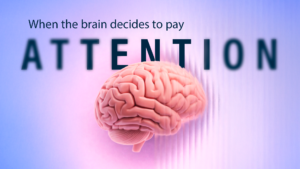
How Silent Presenteeism Is Impacting Mental Health in Organizations
In the post-pandemic corporate landscape, organizations face a silent but growing challenge: presenteeism. Unlike absenteeism, this phenomenon occurs when employees show up for work despite being physically or mentally unwell. This behavior not only endangers individual health but also undermines overall business performance.
A recent systematic review published in PubMed in 2023, titled Presenteeism and mental health of workers during the COVID‑19 pandemic, compiled strong evidence around this phenomenon. The study found that during the pandemic, many employees continued working while suffering from stress, exhaustion, or illness—driven by fear of losing income or their jobs.
What Does the Study Reveal?
The review examined research published between January 2020 and January 2023. It aimed to understand how personal factors (like anxiety, depression, or fatigue) and structural conditions (mandatory remote work, job insecurity, lack of organizational support) fueled presenteeism.
Key findings include:
- Presenteeism significantly increased in sectors with heavy workloads and low emotional support.
- Fear of job loss and high-pressure organizational cultures were key drivers.
- Presenteeism lowered productivity and increased error rates, directly impacting companies’ bottom lines.
- Most organizations lacked clear policies for mental health support or medical leave for psychological issues.
Burnout, Productivity, and Business Decision-Making
Burnout—now officially recognized by the WHO as an occupational illness—was a major trigger of presenteeism during the pandemic. This syndrome, defined by emotional exhaustion, depersonalization, and reduced personal accomplishment, is dangerous precisely because it often goes unnoticed.
From a Neurobusiness perspective—an approach that merges neuroscience with business leadership—burnout impairs decision-making, interpersonal empathy, creativity, and innovation. Chronic stress hampers core brain functions such as focus, memory, and executive reasoning.
The False Dilemma: Mental Health vs. Productivity
For too long, business leaders have treated mental health as a “personal” issue, external to the realm of performance. This study dispels that myth by showing that workers dealing with anxiety, stress, or fatigue produce less, make more mistakes, and take longer to complete complex tasks.
The hidden economic cost of presenteeism is staggering: “present” workers performing at suboptimal levels silently drain productivity. Over time, this affects workplace culture, team morale, and the company’s public image.
What Can Companies Do?
The study recommends implementing proactive mental health strategies, including:
- Training leaders in psychological first aid and active listening.
- Regularly assessing emotional well-being across teams.
- Offering flexible work options in cases of emotional overload.
- Providing confidential access to psychological services.
- Creating a culture where emotional care is not seen as weakness.
From a Neurobusiness angle, leaders can also design workspaces that support emotional regulation: natural lighting, active breaks, calming background music, mindfulness techniques, and emotional acknowledgment in leadership communication.
Looking Ahead
Presenteeism reflects a workplace culture that still prioritizes “physical presence” over holistic well-being. This study sounds a timely alarm: unless business leaders reimagine how they support mental health, the costs will continue to rise.
Investing in mental health isn’t a luxury—it’s a strategic decision. Businesses that understand this will reduce presenteeism and burnout, boost innovation, and build stronger, more engaged teams.
Conclusion
The pandemic left deep marks on the modern workplace. Among them, presenteeism has emerged as a hidden but serious threat. This study underscores that mental health must be a core element of any business strategy—ignoring it puts the future of the organization at risk.
References
- Silva, M. C. P., Silva, R. M., Silva, A. L. P. da, & Pinheiro, P. N. C. (2023). Presenteeism and mental health of workers during the COVID-19 pandemic: A systematic review. BMC Public Health, 23, Article 1629.
- 🔗 https://pubmed.ncbi.nlm.nih.gov/37780429/
Continue reading more articles: https://neurobusiness.us/blog/


